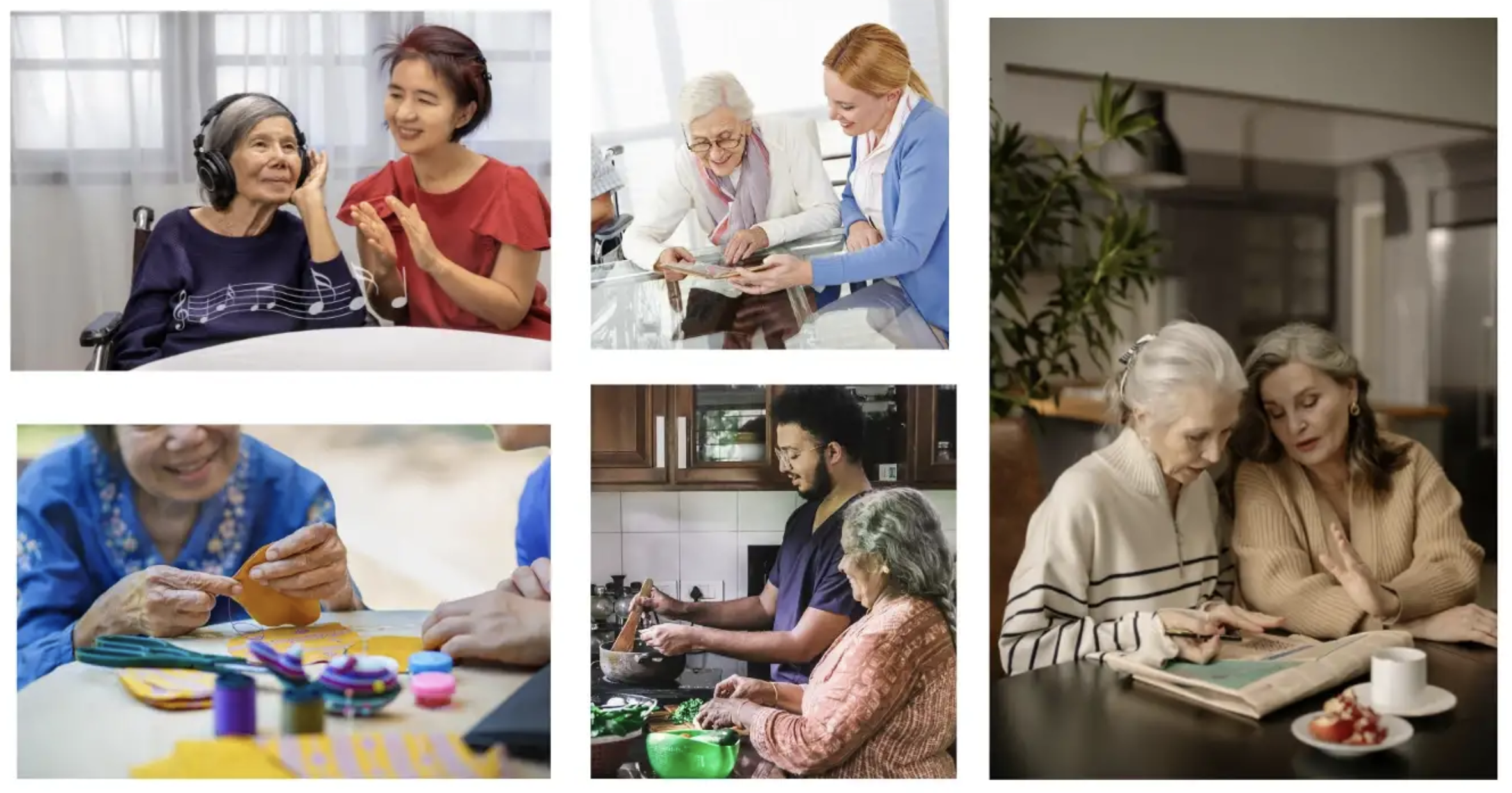Meaningful engagement plays a very critical part in dementia care. Encouraging people with dementia to get involved in activities with the purpose improve physical and mental well-being and thus the quality of life. When caring for someone with an incurable disease condition like dementia, assisting them to lead a better quality of life should be prioritized and given utmost importance.
Meaningful engagement is aligned with the person-centered approach, wherein the person with dementia is encouraged to actively participate in activities. Participating in such activities can help the person to enhance their self-esteem and achieve pleasure. Most importantly, meaningful engagement is a form of non-pharmacological approach which is proven to reduce behavioural challenges in people with dementia. The choice of activities lies in the person’s occupation, past and current interests, and things that make them happy.
Meaningful Engagement Activities:
Certain points caregivers should keep a check on when offering them
-
Involve them in activities that are not too difficult to do. Always keep their physical and mental abilities and intellectual functioning in mind.
-
Do a basic assessment of what category of activity they need more or benefit from as per the stage of dementia, for instance, simple activities involving touch, hugging, fidgets, etc. may be more beneficial for someone with advanced stage dementia, computer activities and sudoku may be more beneficial for someone with mild stage dementia, simple math activity as cognitive stimulation may be more beneficial for someone with moderate dementia.
-
Avoid activities that could trigger them
-
Break down the activity into parts and let the person complete each of them step by step.
-
Do not complete the task by yourself. Assist the person, if needed.
-
If they start losing interest, switch or modify the activity.
-
Use humour at stressful times.
-
Keep realistic expectations; do not just try to finish the task, enjoy these moments spent together with your loved one.
-
Take care of your well-being too. You ought to have the health and strength to care for them.
In order to best engage and stimulate them, activities should include physical (body movement, exercise), cognitive (thinking, imagination), sensory and motor, and social activities (interaction, travelling), while also giving them sufficient time to rest. Here are some activities that will keep them actively engaged:
Active Engagement
-
Arts and Crafts: Painting, Gardening, Decoration
-
Exercise: Evening walk, Yoga, Meditation
-
Fun games: Puzzles, sports, ball games, card games
-
Recreational activities: Listen to music, dance together, watch a movie
-
Reminiscence: Look at family photos together, talk about their childhood
-
Sensory motor: Sorting coins, bead stringing, art with clay
Note that mistakes may happen throughout this journey, but it is necessary that you don’t let their morale get down. Keep encouraging them to try again and engage actively in the activities. Given the fact that their abilities and performance decline with age and the progression of dementia, allowing them opportunities to express themselves could make them feel relieved and safe, and enhance their self-esteem and balanced well-being.
Visit our LinkedIn page for the latest updates on our company, including exciting developments and new offerings. Stay informed and connected with us as we continue to grow and provide valuable learning opportunities for professionals in caregiving industries.





